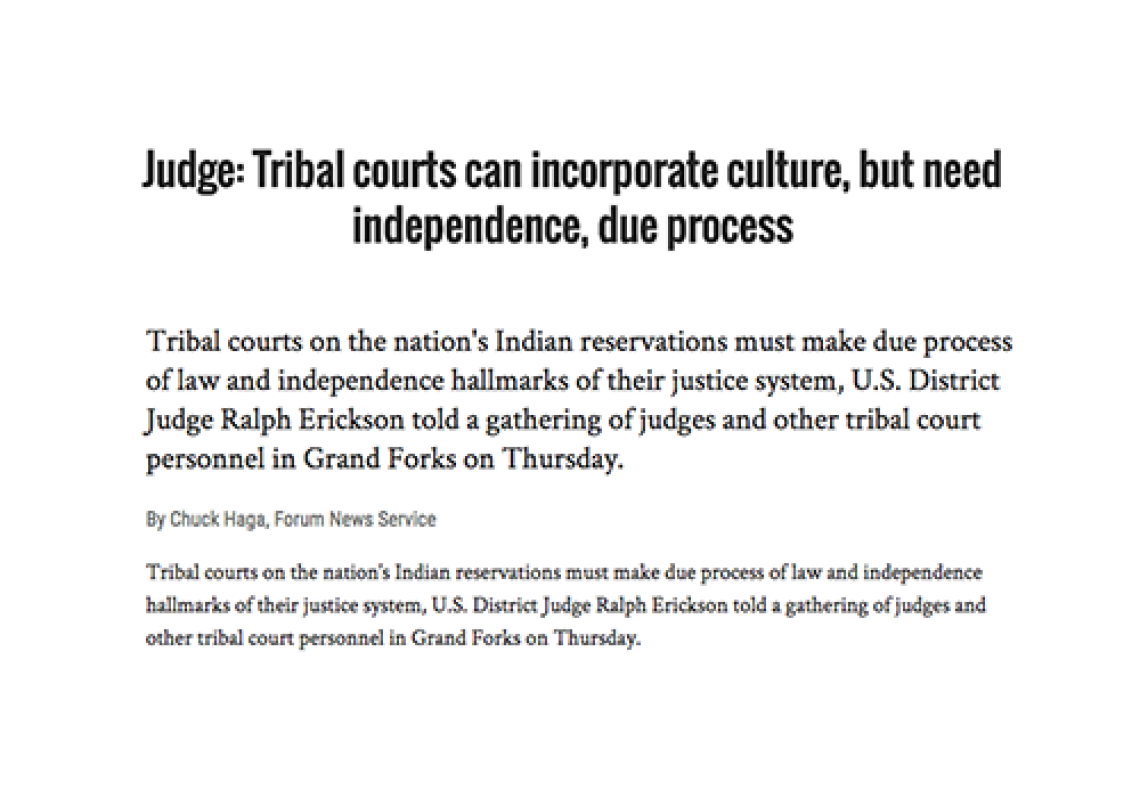Year
Tribal courts on the nation’s Indian reservations must make due process of law and independence hallmarks of their justice system, U.S. District Judge Ralph Erickson told a gathering of judges and other tribal court personnel in Grand Forks Thursday. Tribes can and should incorporate such Indian cultural traditions as “peacemaker courts” and “talking circles,” Erickson said, and those features should be respected by people outside the tribes...
Additional Information
Resource Type
Topics
Citation
Haga, Chuck. "Judge: Tribal courts can incorporate culture, but need independence, due process." Grand Forks Herald. June 20, 2013. Article. (http://www.crookstontimes.com/article/20130621/NEWS/130629909, accessed June 24, 2013)

